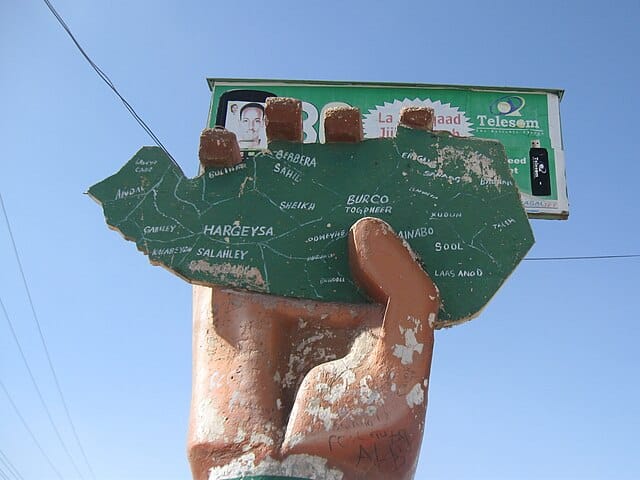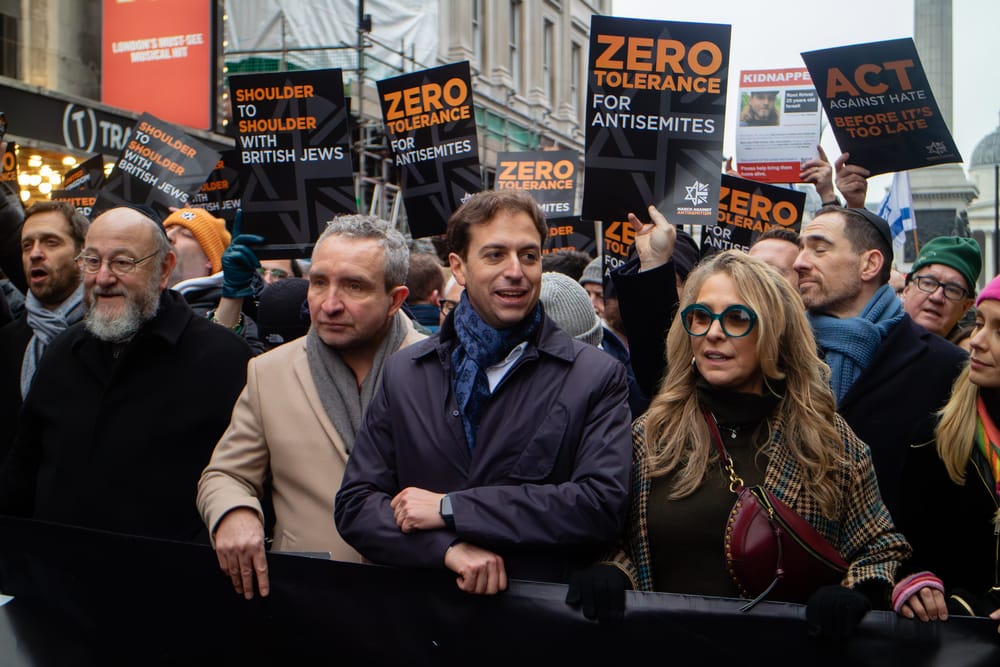No, the future of the Palestinians is not in Somaliland
Israel’s proposal to outsource responsibility for the Palestinians onto Somaliland is not only morally objectionable but practically and politically untenable.

Despite whispers to the contrary, Somaliland will not be accepting displaced Palestinians in exchange for recognition. I make this bold, unequivocal claim based not on any insider knowledge, but from a cold, hard assessment of the facts, derived from over a decade observing Somaliland’s relationship with the world.
I feel compelled to make this intervention following emerging reports in CNN of Somaliland and Israel holding talks about the possibility of using Somaliland’s territory as the solution to Israel’s aspirations to ethnically cleanse Palestine. This proposal seemingly comes with the backing of the US government, which would offer formal recognition of Somaliland’s statehood in return, something for which the people of Somaliland have yearned since pursuing independence from Somalia in 1991.
However, as a recent Middle East Eye article has begun to spell out, this issue is truly a non-starter. Most obviously, Somaliland lacks the capacity to absorb the number of Palestinians required to make a difference. The country has little over four million citizens of its own, and it is hard enough to provide for them in a socio-economic climate plagued by recurrent drought, severe underdevelopment, political tensions and weak governance.
To manage an influx of millions of desperate, vulnerable outsiders without destabilising Somaliland’s precarious peace and security would require nothing short of creating a parallel Palestinian living space within, but not of, Somaliland society. While this could be sold as a “refugee camp”, in practice it would be a walled concentration camp, lest the Palestinians attempt to return back to Eurasia via one of northern Africa’s many informal migration pathways. It would have to be guarded by a massive foreign security force, as such an effort would be beyond the capabilities of the Somaliland police and army. Therefore, any plans of this kind would not only be a ghastly moral affront, but a huge practical undertaking.
This is not to diminish how enticing the arrangement might seem in theory. The United States sees the presence of Palestinians in the Levant as a headache and a threat but is unable to find a place for them that would not undermine relations with suitably powerful nations, such as Jordan or Egypt. In the eyes of the Trump administration, Somaliland, like the rest of sub-Saharan Africa, is a pathetic and superfluous part of the world, so why not dump Israel’s problems on them? Surely, Somaliland would be grateful for the diplomatic upgrade, and for whatever aid and other economic inducements would accompany all this.
The trouble is, first of all, that the fallout from such a plan would not be confined to Somaliland. Ethiopia, for example, one of the largest and most powerful countries on the African continent, has spent the better part of the past three decades treating organised, political Islamic movements as an existential threat, and it has invested heavily in blood and treasure to combat them. I can see no situation in which Ethiopia would accept a large influx of Palestinian refugees, with their own long history of militarism, across its borders, in a country which would have little ability to control these new arrivees’ actions and movements.
And how would these Palestinians get to Somaliland? Forced on foot or trucked through Egypt, which already seeks to distance itself from the fallout of Israel’s destruction of Gaza? Trafficked in ships across the seas, partially policed by the Houthis and Iranians? All with the tacit acceptance of Saudi and the UAE, who are known to have major influence over Somali politics, while the citizens of the Gulf watch on in horror as their Muslim brothers are herded in droves to foreign lands? Somaliland, while marginalised, is not beyond the region’s geopolitics and is instead intimately tied up in them, regardless of the prejudices held in Washington and Tel Aviv.
And what would it mean for Somaliland? Whatever formal statehood it could secure at the legal level through diplomatic recognition, it would lose in terms of substantive political statehood, as there would no longer be a coherent, unified state to assume the mantle of self-governance.
This is because the terms of any agreement would be too much for the Somaliland political decision to bear. While Somaliland has proven capable of integrating past waves of migrants, such as Yemenis following the outbreak of their country’s civil war, this episode was seen as an extension of hospitality to fellow Muslims in need of help. The exact opposite would be the case with forcibly displaced Palestinians, as most Somalilanders would no doubt see their government’s actions as complicity in a war against fellow Muslims. And while Somalilanders hold comparatively favourable views of Israel relative to many of their co-religionists, I cannot see this hospitable attitude extending to the persecution of Palestinians.
The Somaliland government’s complicity in the ethnic cleansing of Palestinians would likely not go down well with much of Somaliland’s sizable youth population, whose sense of transnational Muslim identity grows stronger by the year. Nor would the ceding of land to accommodate this experiment – likely near the valuable and strategic coastline – go down well in a country already mired with controversy over Ethiopian and Emirati efforts to gain a military foothold in its territory. The choice of location for such a large operation would inevitably favour certain of Somaliland’s clan constituents over others, thereby further fraying already tense relations between communities.
Lastly, accepting such a deal would place Somaliland at great security risk. While the country has so far prevented the emergence of organised terrorist movements within its territory, becoming allies of the Zionist cause would likely upend this trend. The Houthis, who reside a mere 500 kilometres away across the narrow Gulf of Aden, retain the capacity to strike Somaliland’s capital at any time. The UAE or US could offer security protections and missile interception capabilities, but this would defeat the purpose of outsourcing the problem to Somaliland in the first place. Equally, as far as Al-Shabaab and ISIS-Somalia are concerned, this would place a target on Somaliland’s back that until now, it has done well to evade. Associating themselves with the Palestinian cause might be just the ticket for these two extremist groups to galvanise international legitimacy and funding, a lesson to be learned from their collaborators, the Houthis.
In short, the refugees-for-recognition deal, in addition to being unconscionable from a moral perspective, seems illogical and infeasible from a political and practical perspective. Somaliland may prove willing to take in a symbolic number of Palestinian refugees – such as the 2,000 individuals that Indonesia is allegedly willing to accept – but this will not be the game-changer Israel is looking for, and it will not be enough to earn US support for Somaliland's recognition. Open and shut case, it would seem.
Have the limits of practical and political necessity always proved effective in constraining Israeli and US foreign policymaking? Of course not. Do increasing delusions of supremacy and unaccountability among Israeli and American leaders mean that previous red lines are being crossed on a daily basis? Certainly. Nevertheless, for the people of Palestine and Somaliland, on this occasion, I hope that I am right. ▼
Dr Matthew Gordon is an academic and international development practitioner with over a decade of experience working in the Horn of Africa, and an editor at Vashti.
Author

Dr Matthew Gordon is an academic and international development practitioner with over a decade of experience working in the Horn of Africa, and an editor at Vashti.
Sign up for The Pickle and New, From Vashti.
Stay up to date with Vashti.



